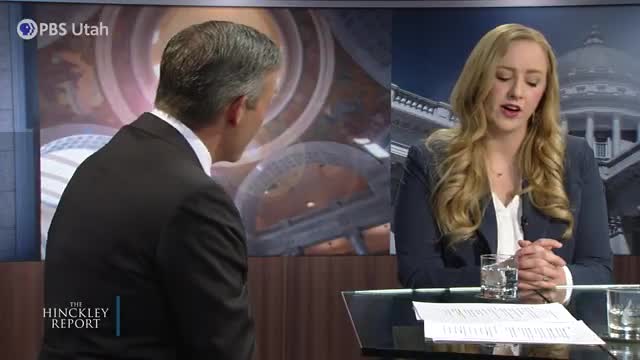Utah lawmaker outlines package of immigration measures focusing on criminal penalties, nonprofits and school supports
Get AI-powered insights, summaries, and transcripts
Subscribe
Summary
Representative Candice Pierucci described a suite of bills the legislature may consider addressing criminal penalties tied to immigration cases, sanctions for nonprofits that transport undocumented people, E-Verify, jail capacity and emergency funding for English-language learners.
Representative Candice Pierucci, a Republican from Riverton, outlined a package of immigration-related bills this week that she said will concentrate on criminal elements tied to recent migration flows, sanctions for certain nonprofit behavior and supports for schools absorbing non‑English-speaking students.
Pierucci described the proposals as aimed at public safety and at reducing the burdens municipal and school systems are facing. "So we're bumping it up 1 day," Pierucci said of one proposal to change Utah's incarceration threshold for Class A misdemeanors from 364 days to 365 days so that individuals meeting that threshold could be treated differently for immigration enforcement purposes. "We're also, telling judges, hey, you need to be looking at individuals who are here illegally and then are, you know, picked up on a crime, as a high flight risk when you're setting bail."
Why it matters: the bills, if enacted, would alter how state courts and local agencies address cases involving people who are unlawfully present and would add conditions for nonprofits that assist migrants — changes that could affect schools, courts and nonprofit service providers.
Key elements described by Pierucci on the program included:
- A proposal to change the incarceration calculation for Class A misdemeanors (currently 364 days) to 365 days to affect deportation eligibility under federal immigration enforcement, as described on the program; Pierucci said the change is intended to make certain offenders eligible for deportation. (Statement on the program: "So we're bumping it up 1 day.")
- Language directing judges to treat individuals who entered the country unlawfully and are arrested for new offenses as higher flight risks when setting bail.
- A proposal to sanction nonprofits that knowingly transport or leave undocumented individuals in Utah by revoking charitable (501(c)(3)) status or disqualifying organizations from state grants if they knowingly facilitate transport, as discussed on the program.
- Bills addressing E-Verify use, jail capacity, and expanded efforts to combat gang violence targeting juveniles and other communities.
- A funding mechanism for English‑language learners modeled after emergency funding provided when unexpectedly large cohorts of students arrive, intended to supply targeted English‑language instruction and avoid sudden classroom overcrowding.
Pierucci framed the package as focused on those who commit additional crimes after entry and on gang violence, saying, "So we're really cracking down on gang violence. We've seen TDA have a presence in Utah, which is incredibly concerning. And then we have other bills. You know, I think there's, 11 bills in total we could talk about." (Quotation as presented on the program.)
Panelists on The Hinckley Report also discussed public opinion data showing rising concern about immigration. The program cited a Gallup question asking whether overall immigration should be increased, decreased or kept at present levels; Gallup responses cited on the show rose from 28% saying "decrease" in 2020 to 55% in 2024.
No bills were shown as introduced or voted on during the program. The measures Pierucci described were framed as proposals that would be offered during the 2025 legislative session; the program did not record formal committee action or votes on any of the items discussed.
The proposals discussed would intersect with federal immigration enforcement, local court practices and school funding. Pierucci and other panelists emphasized the need for federal solutions even as the state considers legislation to address local impacts.
Next steps indicated on the program: lawmakers expected to file bills during the legislative session; specifics about bill text, bill numbers, committee referrals and fiscal notes were not provided in the segment.
